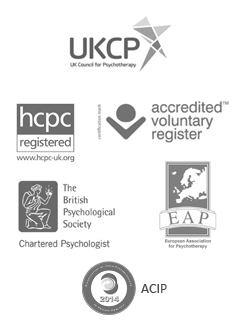Hating Your Body After Pregnancy
Reader’s Question
My husband and I had a child about 10 months ago. Due to complications during delivery I had to have a c-section. Next month will mark 1 year since my husband and I had intercourse. It’s not from a lack of trying on his end. I only weigh about 10lbs more than my pre-pregnancy weight, but I can’t even stand the thought of being naked, which completely deters me from wanting to have intercourse — and don’t get me started on my scar from the cesarean section. I am afraid of getting pregnant again even though I am on the depo shot due to getting pregnant while on the pill. I wouldn’t change anything because my son was born healthy and safe. Is this normal? And is there anything that I can do to help this?
Psychologist’s Reply
After pregnancy, it is incredibly common to have negative feelings towards one’s body. These feelings can often translate into diminished desire for intercourse. It is usually not the specific type of scar or exact amount of weight gain that impacts one’s self-esteem and body image. More so, it is how you felt about your body prior to pregnancy and how you cope with all these changes that matters. For anyone in this position, try this: pause for a second and absorb that for 40 weeks (10 months) you had no real control over how your body changed. As you think about this, what feelings or emotions came up? The first step is to give yourself permission to process those feelings by talking them through with your spouse, friends or a professional counselor.
Next, let’s try to understand why these feelings may occur. During pregnancy, many expectant mothers feel they have lost control over their bodies. This loss of control often results in feeling distant and/or wanting to control their bodily needs post pregnancy. During the first year of motherhood, women are also learning how to respond to their babies’ needs and often overlook their own. Complaints about not having time to shower, sleep, use the restroom or eat a full meal are commonplace. As such, on a daily basis, they are constantly ignoring and distancing themselves from their bodily needs in efforts to raise a child. The body that they knew for 20-40 years prior to pregnancy can feel very different from their current one. And many women weren’t happy with their bodies prior to pregnancy. During periods of change and stress, pre-existing negative feelings can intensify.
A good starting point to address these feelings is to critically examine your emotions and current lifestyle. Ask yourself the following questions:
- How did you feel about your body before pregnancy?
- What areas of your life do you feel you have control over?
- Has your schedule drastically changed?
- Do you have any time for just you, without your child or spouse?
- Can you spend any time getting to know your new body through meditation/yoga/exercise?
Try to start cultivating love for the body you currently have. In your specific case — and I appreciate this is more easily said than done — consider reframing how you see that c-section scar and weight change. These changes can symbolize the miracle of life…the proof that you brought a child into the world.
It is especially important to pay attention to the negative thoughts and/or critical statements you may say to yourself or to others about your body. Common negative self-talk statements include terms such as always, never, should, and could. When you hear yourself saying them, try to ask yourself: Is this really true? Are there any exceptions? Would I say this about someone else? This process is part of a set of cognitive behavioral techniques used to reduce negative self-talk. Increasing awareness of how often you engage in negative self-talk and countering it with more positive statements can be helpful.
In terms of the worry about becoming pregnant again, some women find it helpful to return to their OB/GYN for reassurance about pregnancy rates of the specific birth control method being used. Others also chart their ovulation to assist with ensuring they are not having intercourse during fertile periods. When you find yourself getting worried about becoming pregnant, you can try reminding yourself of these facts to help manage the anxiety. For example, “I know I am scared of getting pregnant, but the doctor mentioned that research shows X people get pregnant while on Depo. Also, I am not ovulating during this time period so the chance of pregnancy is less than Y.” Creating an inner dialogue to help counter your anxiety is often helpful.
Some couples find it helpful to rekindle their intimacy by beginning with non-sexual touch and gradually increasing their levels of physical touch. Many new parents find it useful to seek individual or couples counseling to gain assistance in navigating the multiple transitions with parenthood.
Please read our Important Disclaimer.
All copyrights for this article are reserved to ask a therapist

